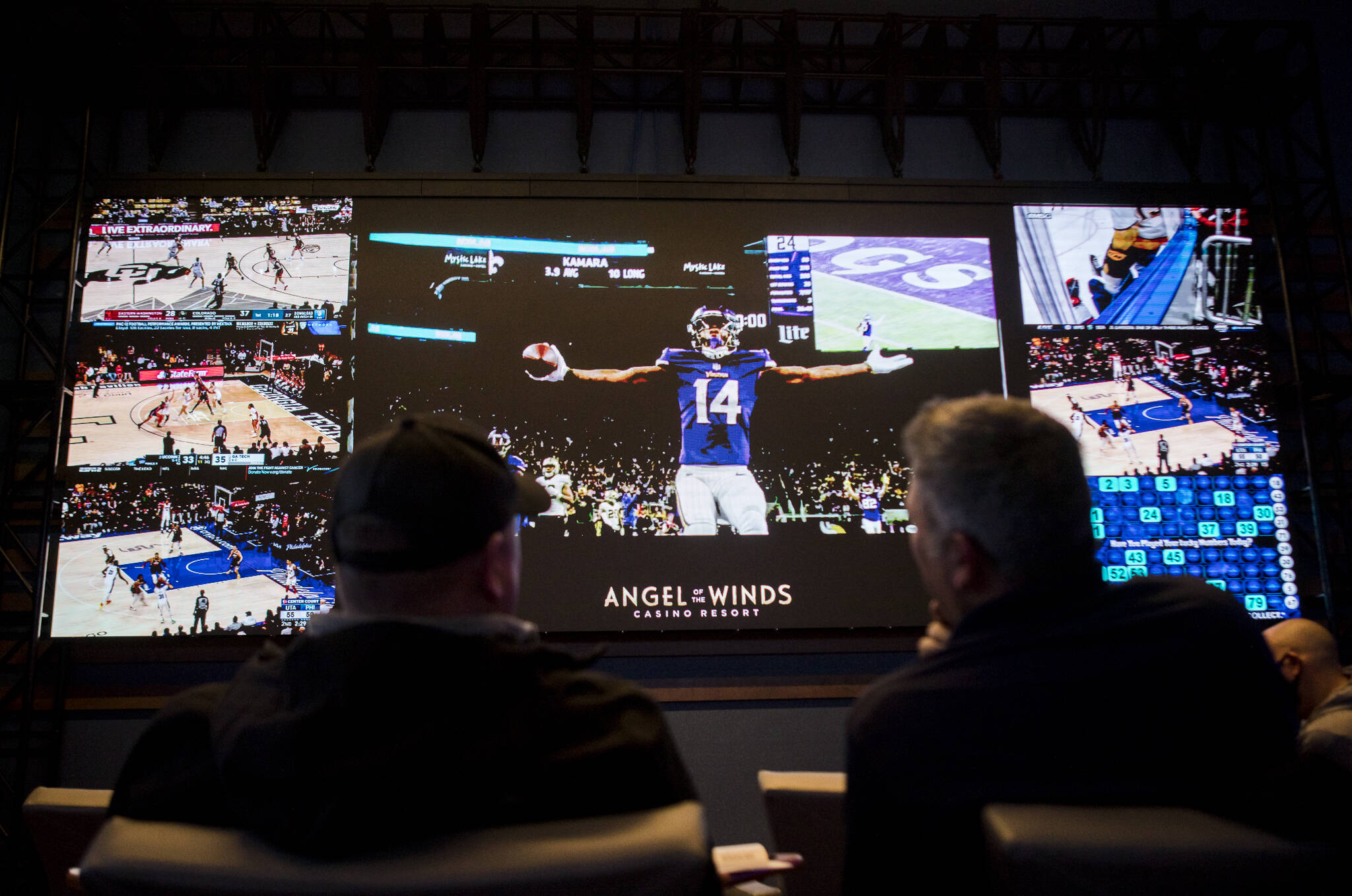TACOMA — A federal lawsuit alleging state officials provided tribal casinos an unlawful monopoly on sports betting has been tossed out, thwarting a Kirkland gaming firms’s bid to offer the increasingly popular form of gambling in its establishments.
Maverick Gaming, which operates card rooms in Snohomish County and across the state, sought to invalidate gaming compact amendments allowing the Stillaguamish, Tulalip and other Washington tribes to offer sports betting in their casinos.
The firm’s lawyers argued in the January 2022 suit those amendments — signed by Gov. Jay Inslee and endorsed by U.S. Secretary of the Interior Deb Haaland — violated a federal law intended to bar gaming activity at tribal casinos on Indian lands unless the state permits the same activity by non-tribal entities.
In October, the Shoalwater Bay Tribe filed a motion to dismiss the case after intervening as a defendant. It argued that even though they were not named in the suit, due to their sovereign immunity, they and the state’s other federally recognized tribes are the true targets of the suit. Thus the suit could not go further.
Chief Judge David Estudillo of the U.S. District Court for the Western District of Washington agreed in a ruling issued Tuesday.
“The court finds that Shoalwater has not waived its sovereign immunity and cannot be joined to this action,” he wrote. “Absent an express waiver by Congress or a clear and unequivocal waiver by the tribe, tribes retain sovereign immunity from suit.”
The decision leaves intact the state’s regulated approach to sports betting enacted in a 2020 law. Twenty tribes, including Shoalwater Bay, have approved compacts to offer this form of gaming.
Maverick Gaming intends to appeal the decision to the Ninth Circuit Court of Appeals. Ultimately, the owner hopes the nation’s highest court will weigh in.
“We expect that this will be resolved by the Supreme Court of the United States,” Eric Persson, CEO and co-founder of Maverick Gaming, said in a statement.
Persson is an enrolled member of the Shoalwater Bay Tribe.
“The ruling today is a complete vindication of our assertion that Maverick Gaming has been attempting to undermine the sovereign rights of Indian tribes not just here in Washington State, but nationally as well,” Charlene Nelson, chair of the Shoalwater Bay Tribe, said in a statement. “We appreciate that Judge Estudillo understood that and has now dismissed the case.”
“As we said at the time of our legal filing, it pained us to have to legally oppose a member of our tribe, but Maverick’s case, if successful, would have irreparably harmed historically marginalized tribal communities, and would have run counter to the will of the Legislature and the general public,” Nelson continued.
Washington’s sports wagering law allows betting on professional, collegiate, international and Olympic sports, as well as e-sports. You cannot bet on college teams from Washington, however. And the law bars bets on minor league sports and high school or youth athletics.
Under the gaming compacts — which are nearly identical for each tribe — wagers can be made on mobile devices on the gaming floor and elsewhere on the premises of casino properties, such as hotel rooms, conference rooms and entertainment spaces attached to a casino. No wagers can be made on golf courses or in convenience stores not directly attached to a casino.
The Stillaguamish Tribe’s Angel of the Winds casino began taking wagers in December 2021. Tulalip opened sportsbooks in two casinos in September.
The Attorney General’s Office, the federal government and 17 tribes supported, through friend of the court briefs, the Shoalwater Bay Tribe’s motion.
“This is a significant victory for tribal sovereignty,” Attorney General Bob Ferguson said in a statement. “Washington law strikes the right balance by permitting sports betting and confining it to tribal casinos, where tribes have experience carefully regulating gambling where individuals must be physically present.”
Legalized sports betting is a growing industry across the country with a record handle of $93.2 billion in 2022, according to the American Gaming Association. Last year also saw the launch of mobile sports betting in Louisiana, Maryland and New York.
In Washington, it could net $94 million of revenue a year to the tribal casinos, according to a 2021 Washington State University study. That is projected to be four to five years from now when sports betting is more firmly established in venues across the state. To generate that number, gamblers would need to wager in the neighborhood of $1.5 billion.
Maverick Gaming sought unsuccessfully in 2020 to convince state lawmakers to pass a bill permitting sports betting in card rooms. A similar bill introduced this session is going nowhere.
Jerry Cornfield: 360-352-8623;
Talk to us
> Give us your news tips.
> Send us a letter to the editor.
> More Herald contact information.

























